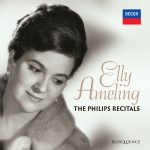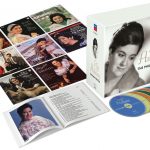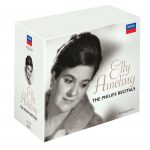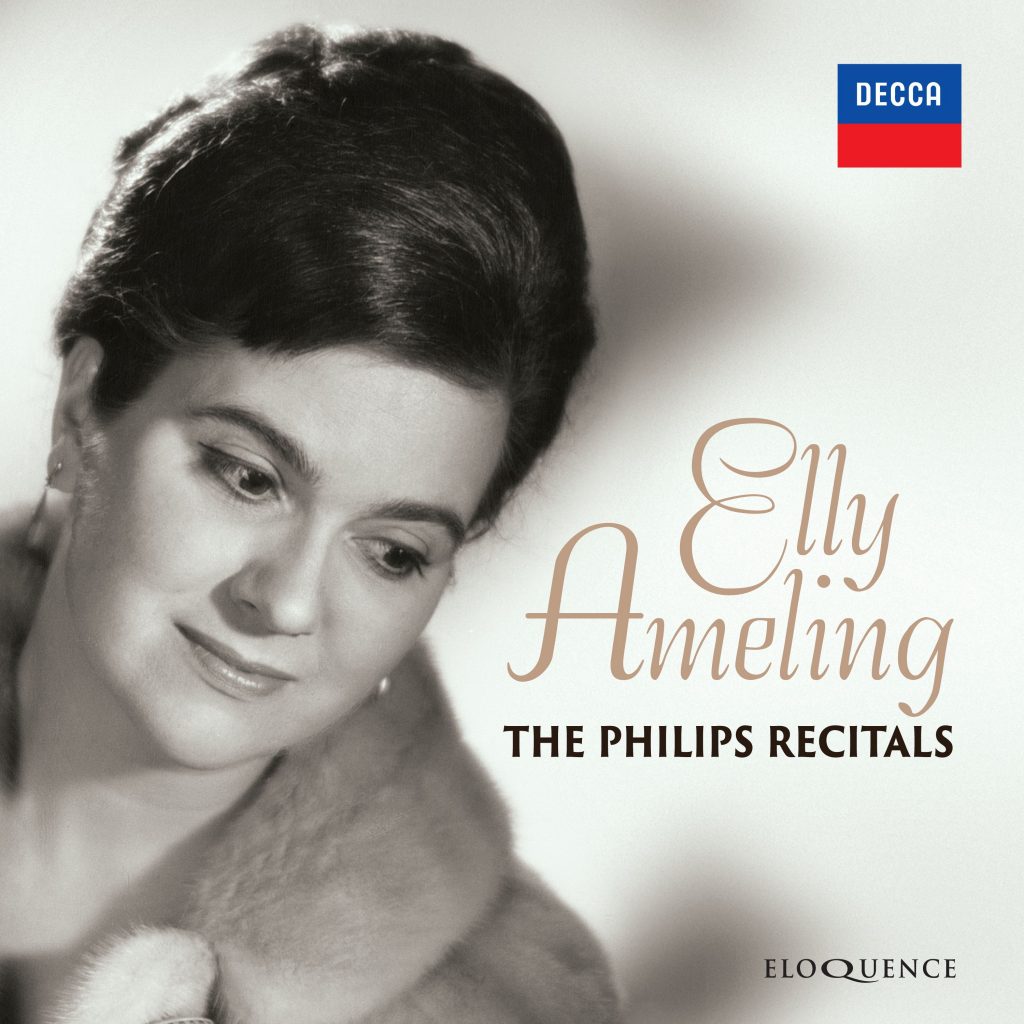
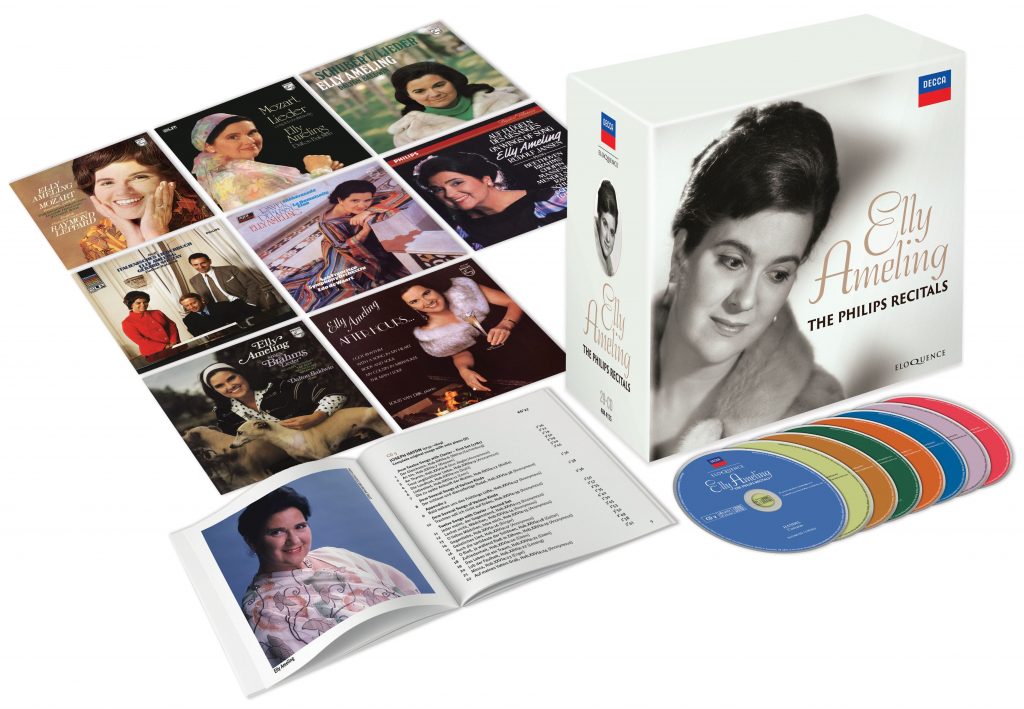
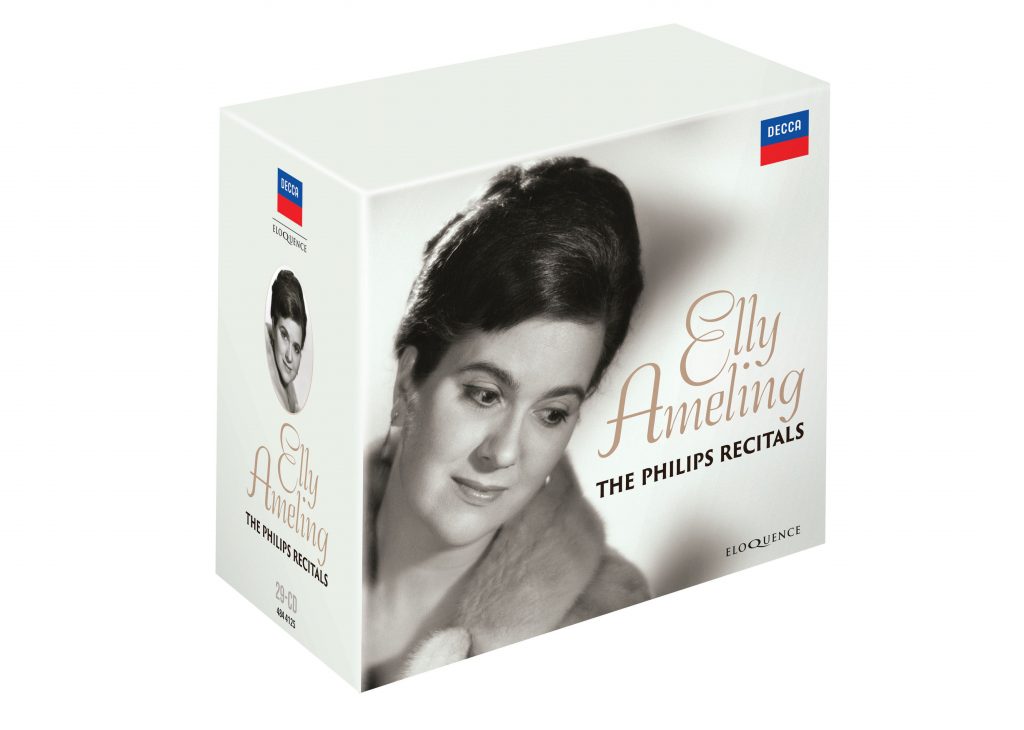
In a career that spanned 43 years, Elly Ameling recorded over 150 LPs and CDs, many of them recognised with an Edison Award, the Grand Prix du Disque and the Deutscher Schallplattenpreis. She chose, from early on, to place art song at the heart of her repertoire. It is the full range of her mastery in this repertoire, from Monteverdi to Mahler, from Schubert to Cole Porter, which is celebrated in the present collection of her Philips and Decca recordings, issued to mark her 90th birthday.
Purity and beauty of voice, lively characterisation and the art that conceals art were the hallmarks of Ameling as a singer. She loved singing as a child, and studying languages as a teenager, and her singing radiated an inner warmth and intelligence throughout her career. That career began in earnest soon after she won a Dutch singing competition in 1956, when a recording was made of the ‘Laudate Dominum’ from Mozart’s Dominican Vespers, K. 321, issued by Philips on a 45rpm record and quickly forgotten. Only now has it been transferred to CD, from a rare copy of the disc in the collection of the Dutch writer René Seghers.
In his new booklet essay for this box, Seghers explains the story behind the recording, and analyses the elusive art of Ameling, informed by his own interviews with her. She recorded with pleasure, and brought an imagined audience into the studio with her, and her communicative gifts transferred readily to the microphone. Philips captured her in Baroque cantatas by Vivaldi and Handel, and in the central German Lied repertoire from Haydn, Mozart and Schubert (eight glorious albums, including his little-known theatre music) to Wolf’s Italienisches Liederbuch and Mörike-Lieder.
Her perfect French is on display in mélodies by Debussy, Poulenc and Satie, and her linguistic virtuosity comes to the fore in several immaculately curated albums of mixed repertoire from Dowland to Castelnuovo-Tedesco.
Digitally recorded in 1982, Ameling’s ‘An die Musik’ Schubert album had the distinction of being the first Lieder recital to appear on CD, and still deserves the accolades heaped upon it then. Though they were made in the CD era, and received with just as much lavish praise as their predecessors, Ameling’s later Philips albums have become collectors’ items, and several of them receive their first reissue in this box. There are even two albums of jazz standards, which Ameling sings in inimitable style.
CD 1
VIVALDI Motets
Vittorio Negri
CD 2
HANDEL Cantatas
Raymond Leppard
CD 3
Vivaldi · Handel · Mozart · Gluck
Kurt Masur
CDs 4–5
HAYDN Complete original songs with solo piano
Jörg Demus
CD 6
MOZART Opera and Concert Arias
Edo de Waart
CD 7
MOZART Exsultate, jubilate; Arias
Raymond Leppard
CDs 8–9
MOZART Lieder; Notturni
Dalton Baldwin
Netherlands Wind Ensemble
CD 10
Schubert on Stage
Claes-Håkon Ahnsjö
Edo de Waart
CDs 11–15
SCHUBERT Lieder
Karl Engel
Dalton Baldwin
Rudolf Jansen
CD 16
SCHUBERT Vocal Trios & Quartets
Dame Janet Baker; Peter Schreier; Dietrich Fischer-Dieskau
Gerald Moore
CD 17
SCHUMANN Frauenliebe und -leben
SCHUBERT Lieder
Dalton Baldwin
CD 18
SCHUMANN Liederkreis, Op. 39;
Lieder-Album für die Jugend
Jörg Demus
CD 19
BRAHMS Lieder
Dalton Baldwin
CD 20
German Romantic Songs
Dalton Baldwin
CD 21
WOLF Italienisches Liederbuch
2 Mörike-Lieder
Gérard Souzay
Dalton Baldwin
CD 22
WOLF Mörike-Lieder
Dalton Baldwin
CD 23
RAVEL Shéherazade
DUPARC 2 Mélodies
DEBUSSY La Damoiselle élue
Edo de Waart
CD 24
Soirée Française
Rudolf Jansen
CD 25
Auf Flügeln des Gesanges
Rudolf Jansen
CD 26
Serenata
Rudolf Jansen
CD 27
Sentimental Me
Louis van Dijk
John Clayton
CD 28
After Hours
Louis van Dijk
CD 29
Mozart · Thomas · Verdi
Schubert · Grieg · Mahler
Halina Łukomska · Edna Graham
Hein Jordans · Kurt Masur · Edo de Waart · Bernard Haitink
“Perhaps today’s best example of the artfully simple Lieder singer … What she has above all else is the gift to sing these songs in a way that never precludes the most delightful personality, yet never lets that personality intrude between the listener and the song.” High Fidelity, August 1974 (Schubert: Goethe-Lieder)
“The recital is intelligently planned … She sings with her usual musicality, freshness and warmth. She even manages, difficult on a recital disc, to differentiate between the characters she portrays.” Opera, December 1974 (Mozart: Opera & Concert Arias arias)
“Ameling once again demonstrates that in the performance of Lieder today she has few peers … Frauenliebe und -Leben is utterly convincing … She has moreover the rare gift of being able to make all her nuances sound unpremeditated.” High Fidelity, December 1975 (Schumann/Schubert)
“The recording is principally constructed around the charms and skills of Elly Ameling, who is assisted in fine style by the Rotterdam PO and the clean, attractive direction of Edo de Waart. A wonderful and very welcome new recording.” Stereo Review, June 1977 (Schubert on Stage)
“Elly Ameling sings with her usual charm and clarity … De Waart and his orchestra provide warm support, as does the well balanced and forward recording.” Opera, June 1977 (Schubert on Stage)
“The microphone concentrates her considerable virtues, [and] brings us as close to her as we would be in a drawing room … the principal virtue of her performances is that she achieves the narrative or descriptive ends of these pieces without violating their lyrical integrity.” High Fidelity, September 1978 (Schubert Songs for Gretchen, Ellen & Suleika)
“Her new album of Brahms is instructive besides, it goes without saying, beautiful. Her voice has thickened and deepened, although she is still a mistress of the light touch, the accent barely emphasized yet adding wonderfully to the dramatic effect.” Fanfare, May 1979 (Brahms: Lieder)
“Silete venti and Crudel tiranno Amor are admirably suited to Miss Ameling’s voice and style, and the Allegro of the latter piece is captivatingly sung … Lovers of pure singing will find this a highly enjoyable disc.” Opera, November 1981 (Handel: Cantatas)
“Anyone who thinks of this Dutch soprano as a rather demure singer may be surprised at the delightful combination pure voice, magic melodies and cabaret style … Ameling uses a winning degree of shading of tone, or portamento and under-the-note attack.” Gramophone, March 1983 (After Hours)
“Ameling sounds quite comfortable in this congenial tessitura … her directness of expression effectively undercuts the latent sentimentality of the Damozel’s Heaven’s-Gate appeal, and De Waart contributes a similarly warm-toned but unexaggerated reading.” High Fidelity, September 1983 (Debussy, La Damoiselle élue)
“I enjoyed this one even more than the last [Schubert Lieder album], but I can’t imagine choosing between them; I’d cheerfully trade, oh, the last 15 Puccini sets for either… Best of all is the opening song … where one has the sudden thrilling realization that the singer is not on automatic in this over-familiar piece, but wholly possessed by it.” High Fidelity, December 1983 (Schubert, An die Musik etc)
“Ameling is strong on languages, so naturally a song about Buenos Aires must be done with an Argentine accent, not mere textbook Spanish … Rudolf Jansen’s strong accompaniments are like an extension of her art. Enough said – if you enjoy good singing, buy this record.” Fanfare, May 1985 (‘Serenata’)
“There is something special about this box. For Ameling’s steady progress towards greatness as a Lieder singer had by 1981 already reached new heights, and Demus is a sure, sensitive and often illuminating accompanist.” Song on Record, 1988 (Haydn: Lieder)
“Quilter’s Weep no more, juxtaposed with Dowland’s setting, makes a most lovely impression, the soprano phrasing with the special touch that always has an audience holding its breath.” Song on Record, 1988 (‘Serenata’)
“Slow, yet with the movement of natural breath, each word and harmony tasted and distilled by voice and piano into an improvisatory effect of the most highly calculated art.” Song on Record, 1988 (Wolf: Goethe-Lieder)
“Best of all is Elly Ameling (and Baldwin also excels at this kind of bright, crystalline piano writing).” Song on Record, 1988 (Wolf, Mörike-Lieder)
“Her lovely voice with its diamond purity is consistently appealing, and she is a persuasive interpreter, wither in the engaging Mignon songs or in the most familiar favourites.” Penguin Guide to Compact Discs (Schubert)

